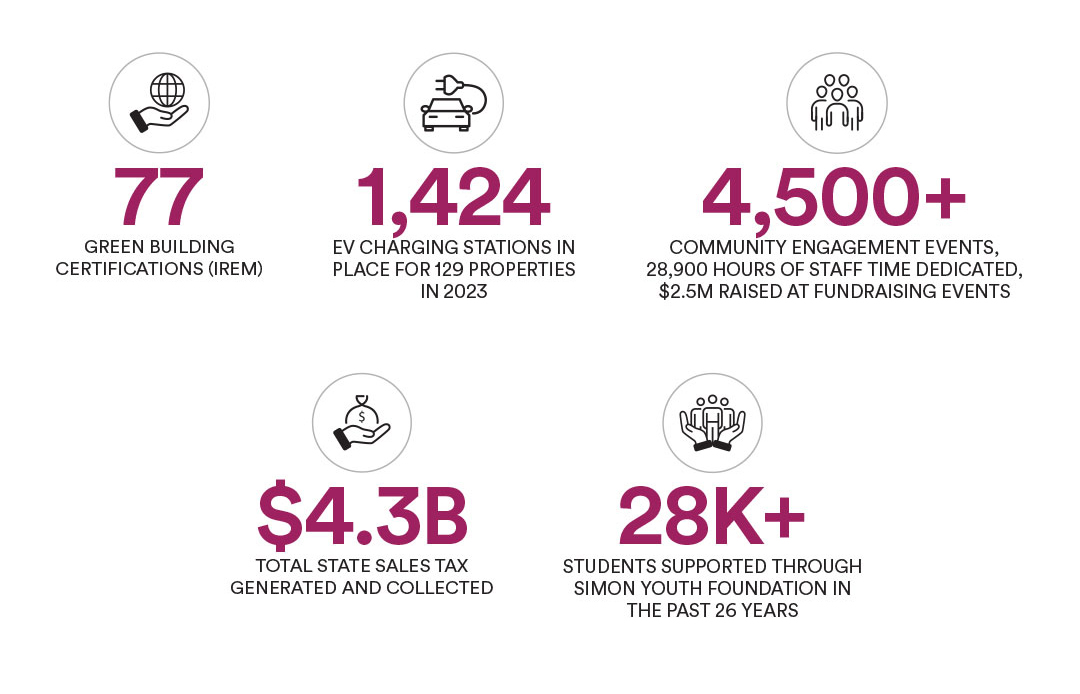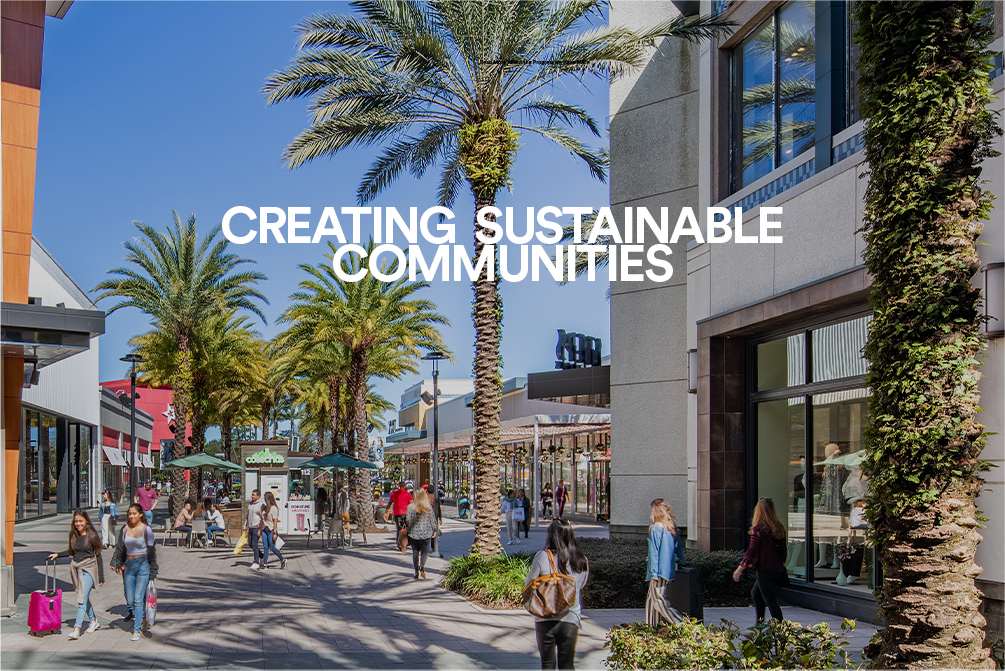Sustainability
At Simon, we define and implement sustainability initiatives that consider all aspects of our business. This approach enhances the communities in which we operate and also generates long-term shareholder value by embracing opportunities, improving the bottom line, and mitigating environmental and social risks.
Our Sustainability vision is to lead the way in sustainable retail real estate development and operations in the U.S. We have implemented sustainability into our business, from how we plan, develop, and operate our properties to how we do business with our customers, engage with our communities, and create a healthy, safe, productive, and positive work environment for our employees.
The four key areas of our sustainability framework are:
Responding to customers’ needs and assisting our tenants to succeed in their business by enhancing the shopping experience at Simon Centers.
Build strong communities through development and engagement activities that have a positive social and economic impact at the local level.
Effectively develop and operate our properties with innovative solutions that reduce our environmental footprint as well as our operational costs.
Maintaining a culture that attracts and retains the sector’s best talent through thoughtful employee engagement.
Key Highlights 2023

External Recognition










